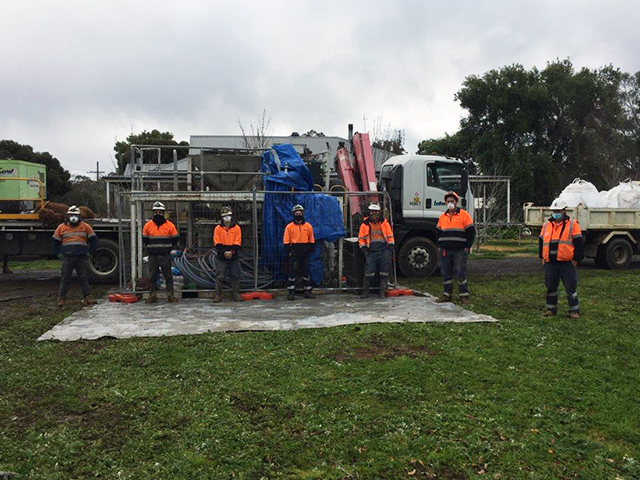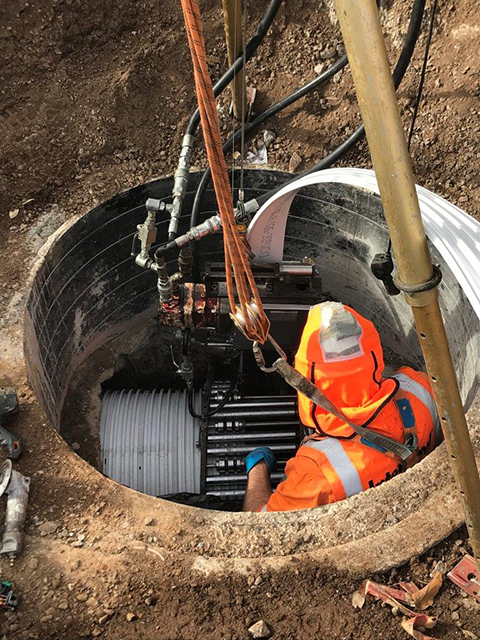
The notion of co-creation is facilitating a major shift in the way industries transfer knowledge and communicate. When companies co-create, they invite third parties such as consumers, suppliers and service providers to collaborate on industry initiatives or projects.
This concept is redefining contractor relationships within the water industry, paving the way for robust and dynamic discussions that provide new insights into community wants and needs.
Early Contractor Involvement (ECI) is a prime example of co-creation in action: it facilitates collaboration between service providers, contractors and their customers at the earliest stage of a project. As a result, the service provider can harness the asset owner’s intimate knowledge of the surrounding environment, existing infrastructure and community requirements to tailor their solution and drive innovation.
Cooperative involvement is enabling water authorities, government bodies and local councils to play an active role in reshaping their communities through collaboration with their industry partners, as well as key community stakeholders. This enables delivery partners including leading water infrastructure company, Interflow, to develop ‘customer-centric’ solutions to complex water network projects.
Coliban Water’s region covers 49 towns across 16,500km² of regional Victoria, including the Bendigo district. Since its establishment in 1992, the organisation has maintained its focus on delivering appropriate water and wastewater services to communities within the growing region.
A 900mm sewer trunk main that traverses the Bendigo suburbs of White Hills and Epsom was recently identified and prioritised for work after it was found to be in poor condition. The trunk main was discovered to have significant erosion and partial blockages, which meant the pipe had limited capacity for the area it serviced.
The sewer trunk main was first built in the 1960s and the section that was renewed is almost 2km long. It travels under parks, footpaths, roads and private backyards – and is a key piece of sewer infrastructure for that local community.
It was important to find a long-term solution for the ageing sewer trunk main, while also ensuring any impacts on the community were minimised.


Interflow and Coliban Water worked together to establish the most effective way to renew the sewer main. From a planning perspective, the development of a suitable flow management plan was a crucial element of the project.
Interflow staff were able to gain insight about existing infrastructure and the local landscape to help with the planning and design process.
Interflow’s Project Manager, Fergus Meyer, shared how the active collaboration expedited the planning and design phase to deliver the community with a winning solution.
“Coliban Water’s flow data and network analysis were crucial to successfully modelling a viable solution that prioritised community wellbeing and cost reduction.”
“Studying the network infrastructure, we identified a neighbouring pipeline that presented an unanticipated yet promising bypass alternative,” he continued.
Although the neighbouring pipeline was smaller in diameter and unable to accommodate all of the flow from the ageing sewer trunk main, Interflow was able to channel a carefully calculated portion of flow through it. This allowed the sewer trunk main to be relined whilst operating at a reduced capacity.
This solution would not have been realised without the collaboration and knowledge sharing between Coliban Water and Interflow.
Coliban Water’s Infrastructure Manager, Corey Bourne, said the sewer main’s lifespan had been extended by 50 years and a costly full bypass had been avoided. The sewer relining works were carried out during the day which had meant less disruption for customers and also eliminated safety risks associated with night works.
“A combination of practical experience and hydraulic modelling expertise enabled this plan to be developed.”
Before the relining of the sewer main, approximately 300 tonnes of sludge were removed from it.
“The capacity of the sewer trunk main has been significantly improved thanks to these works, and it has also reduced the chance of a sewer spill during a heavy rainfall event,” Mr Bourne said.
Fergus Meyer said co-creation is an important role within projects such as this one.
“Coliban Water’s willingness to be involved in the process reflects their dedication to uphold the interests of the community and achieve a long-term solution,” he said.
“As more companies realise the potential for productivity and innovation that co-creation presents, innovations within the water sector will continue to bloom.”
Learn more about how this collaborative project benefited the Bendigo community: